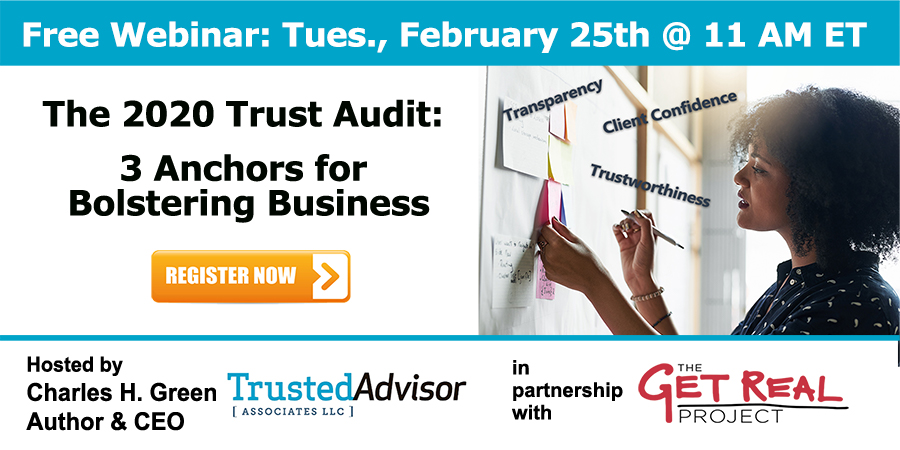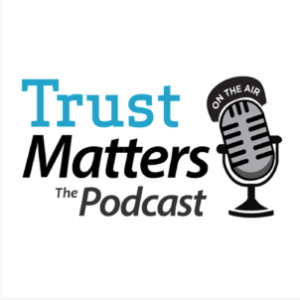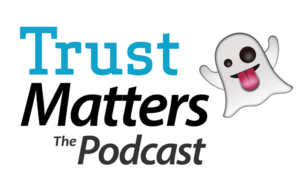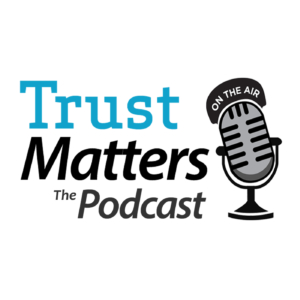Establishing Trust by Mastering the Art of Listening
 We often think of establishing trust in business relationships in sales-related roles. For instance, if I have a product or service, I will tell you how my industry knowledge and credentials will make it clear I am the person you should buy from. In short, you can trust me. I know everything there is to know about this product or service. Just ask me!
We often think of establishing trust in business relationships in sales-related roles. For instance, if I have a product or service, I will tell you how my industry knowledge and credentials will make it clear I am the person you should buy from. In short, you can trust me. I know everything there is to know about this product or service. Just ask me!
Let’s broaden our perspective. Is your expertise the key to building trust in various business and professional situations beyond just sales?
Business relationships encompass various roles, each essential for an organization’s smooth functioning and success. In addition to the roles of suppliers and vendors who provide necessary goods and services and customers and clients who are the end-users, there are employees whose skills and dedication drive daily operations and partners, collaborators, and colleagues who are extensions of their companies, working together for the client’s good.
Regardless of your role, be it a supplier, vendor, customer, client, employee, partner, collaborator, or colleague, trust is a crucial element in fostering a thriving business ecosystem. And it all starts with listening to what each of these role players have to say.
By mastering the art of listening—understanding why you’re listening—individuals can empower themselves to create meaningful connections, better understanding, and enrich their relationships. This understanding fosters empathy, a key element in building trust and a deeper connection with others.
Let People Talk About Themselves and Their Experiences
In professional settings, it’s common for people to believe that their expertise and credentials validate their ability to perform tasks, make informed decisions, and contribute meaningfully— grounding the conversation in trust and reliability.
This is only true when you are talking about yourself, not listening.
Whether you are talking to a client, colleague, friend, or someone you just met, they want to discuss what everyone wants to discuss: Themselves. Being open and receptive to these discussions, and allowing others to talk about themselves, can significantly enhance your professional interactions.
The key to making them feel valued is actively listening as they do so.
Allowing someone to share personal stories and experiences can be powerful in building trust and making connections because it fosters authenticity and relatability. Listening to someone share their experiences and perspectives encourages reciprocity, opening the door to mutual understanding and empathy.
As you listen, it allows others to illustrate values, lessons, and insights memorably. This creates deeper emotional connections that form the foundation of solid and trusting relationships.
It ensures that you fully grasp the needs, concerns, and perspectives of others, enabling you to provide relevant and thoughtful responses. Whether maintaining friendships, working in teams, or conducting business, effective listening leads to better collaboration, problem-solving, and decision-making, enhances mutual respect, reduces misunderstandings, and promotes a more harmonious and productive environment.
Trust integrates the emotional and ethical dimensions that credentials alone cannot provide, making it a cornerstone of successful and fulfilling relationships in all aspects of life.
Put the Art of Listening Into Action
The art of listening is a powerful tool that enhances communication, builds strong relationships, and fosters personal and professional growth. By practicing active, empathetic, non-judgmental, and attentive listening, individuals can improve their interactions and create a more understanding and connected world.
Here are five tips for listening this way:
- Ditch the distractions. You cannot multitask undiscovered, and being multitasked feels insulting. Close the door, face away from the window, blank the computer screen, turn the cell phone over, and avoid glancing at your smartwatch (an all-too-common distraction). Looking at your watch—any watch—suggests that you have other priorities or engagements that you deem more important than the current conversation.
- Use your whole body. Lean toward the speaker—even on the phone. Use facial expressions. Use hands and arms, shake your head, and use “non-verbal” language. Positive body language encourages the speaker to continue and feel valued, promoting a more open and honest dialogue. This improves your listening and indicates to the speaker that you are
- Keep it about them—not you. Use open-ended, not closed, questions. Let them tell their story. By actively listening and keeping the conversation centered on the other person, you demonstrate empathy and understanding, making them feel valued and heard. Keeping the conversation about the other person also allows you to gather valuable insights and information to help you understand their perspective, needs, and expectations.
- Acknowledge frequently. Frequent acknowledgments can include reflective statements or paraphrasing, which help clarify your understanding of the speaker’s message and ensure no misunderstandings. Consistent acknowledgment fosters trust and rapport by demonstrating genuine interest in the speaker’s experiences and perspectives.
- Think out loud. The biggest obstacle to listening is your own thinking. Be courageous— postpone your thinking until they’re done talking. Be willing to think out loud—withthe other person. Doing so role-models collaboration and transparency, and that reinforces trust. I hear you. I value you. I respond to you with no hidden agenda. I trust you. You can trust me.
Listening—unrestricted, unbounded, listening for its own sake—is how we develop such relationships. The point of listening is not what you hear but the act of listening itself.
Resources to Build Your Trust Skills:
- Join or watch a replay of our free webinars.
- Build trust on your terms through our Self-Paced Online Courses.
- Join the crowd and sign up for one of our Public Virtual Workshops.
- Subscribe to our newsletter.
- Follow us on LinkedIn.
Contact us directly to learn about private workshops






